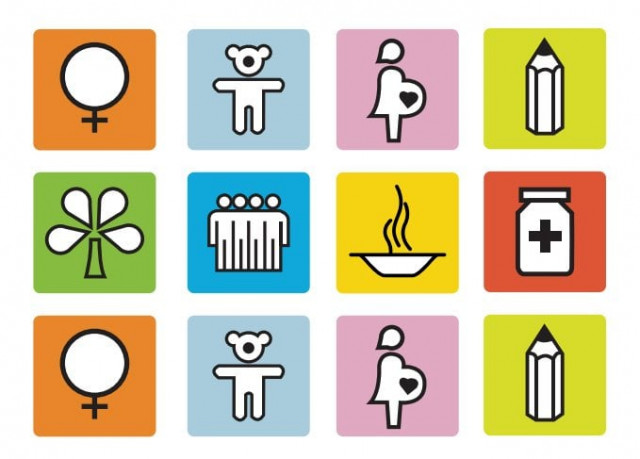National conference on MDGs: Shift to sustainable development goals under Vision 2025 planned
MDG Task force chair discusses programme on sidelines of event.

The shift will include a focus on peace and stability, good governance, monitoring and accountability and more. PHOTO: UN
Time series data available for 33 indicators of the Millennium Development Goals (MDG) reveals that while Pakistan is on track to achieve the targets for nine indicators, progress on the remaining 24 is well off.
At Monday’s National Millennium Development Goals Conference, hosted by the National Assembly of Pakistan with support from UNDP, in an attempt to save the country’s grace at international level, national and provincial task forces on the MDGs consisting of members of parliament and provincial assemblies came together to inform that Pakistan’s development agenda will move its focus from achieving MDGs to Sustainable Development Goals (SDGs) in accordance with the Vision 2025 development plan.
Pakistan is one of 189 UN member states that are committed to 16 targets and 41 indicators against which progress towards achieving the eight MDGs, MNA Marriyum Aurangzeb, chairperson of the MDG Task Force, told The Express Tribune that in Pakistan, unfortunate circumstances such as security, change in political dynamics and natural disasters have played major roles in stunting efforts to achieve the goals.
Aurangzeb explained that the war on terror’s impact of Rs500 billion has affected Khyber-Pakhtunkhwa the most. She said the security situation has had a direct impact on education and increasing carbon emissions have immensely affected the environment.
Adding to that, she said increasing cases of polio have contributed to the failure to meet health indicator targets. She also cited influxes of displaced persons from the tribal belt and Afghan refugees as having an impact on health indicators.
Moreover, post 18th Amendment, the lack of a unified platform to coordinate with the provinces has also led to several drawbacks such as collecting accurate data for better analysis. There has been no monitoring of aid and expenses for the past 13 years, she said. Moreover, data collected at various times reveals contradicting information, she added.
“Members of different political parties have their own ideologies, but they have come together for Pakistan’s development for the first time. Everyone is on the same page,” she said. “Unless legislators take the driver’s seat for development, we won’t get anywhere” she added.
Set to be achieved in 2015, the MDGs are both global and local, tailored by each country to suit specific development needs. In Pakistan, the post-2015 Sustainable Development Goals strategy is set to replace existing MDGs and brainstorming sessions on how to localise the SDGs will be done by the MDG task force through actions plans for 2014-15 and deliberations on post-2015 SDGs.
Meanwhile, speaking of the new plans, Aurangzeb said that while MDGs take a top-down approach, Vision 2025 looks at development from a bottom-up approach.
The shift will include a focus on peace and stability, good governance, monitoring and accountability, driving socioeconomic development reforms, public-private partnerships in development discourse, and tackling exclusion, inequality, health, youth, climate and media issues.
In an effort to monitor ongoing development, MDGs desks established at the Planning and Development Ministry will seek feedback from stakeholder consultation at federal and provincial level.
The conference will run till June 4 at the Pakistan Institute for Parliamentary Services.
Published in The Express Tribune, June 3rd, 2014.



















COMMENTS
Comments are moderated and generally will be posted if they are on-topic and not abusive.
For more information, please see our Comments FAQ